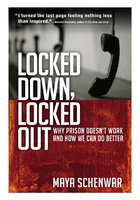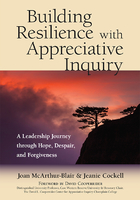The First Key Refiring Emotionally
The sun was breaking through the morning clouds when Janice and Larry arrived at the Tongs' house. Wendy and Harold greeted them at the door and welcomed them inside.
"Dr. Jeffrey told us you're interested in talking about refiring," Wendy said as she showed them to the living room. "That term took us aback, because we've been through a major refiring-literally."
"What do you mean?" asked Janice.
"Our original home was burned down in the wildfires that devastated this area a few years ago," said Harold. "Talk about refiring. We had to refire from the ground up."
"That must have been awful. What did you do?" asked Larry.
"We rented a home nearby and were planning to rebuild," Harold replied. "But our daughter-in-law was walking her dog in the neighborhood one morning and discovered that this house-which we'd always admired-had a for-sale sign on the lawn. We were able to buy it-and save the time and expense of rebuilding-so our house 'refiring' has a happy ending."
"But I'm sure you didn't come over to hear all about us," Wendy said as Janice and Larry settled onto the Tongs' comfortable sofa. "Dr. Jeffrey said he thought we might be able to help you refire emotionally."
"If you could make it through your house burning down, you obviously know a thing or two about emotional resilience," said Janice.
"I suppose we do," said Harold.
"Emotional health is certainly something we've worked on over the years," said Wendy. "It's especially important in relationships. We try to stay emotionally engaged in our relationships with family and friends, as well as with each other."
"Dr. Jeffrey said that having loving relationships was a big part of what he called 'moving from success to significance,'" said Janice. "Tell us about how you've refired emotionally with family and friends."
"A while ago," began Harold, "we noticed that sometimes we were being a little judgmental. If a friend did something that offended us, we tended to write them off. We realized that if we kept that up, pretty soon we'd be out of friends! Then I remembered something my mother told me when I was young. She said, 'There's a pearl of good in everyone if you search for it.'"
"That's beautiful," said Larry. "What a great way to look at others."
"We thought so," said Wendy, "so we started searching for the pearls. We began loving people even when they were engaging in unlovable behavior."
"That doesn't sound all that easy to do," said Janice.
"It wasn't, the first couple of times," said Wendy. "Then Harold and I realized we'd had plenty of practice with our kids! How many kids are loveable all the time?"
"Nobody's kids that I know," admitted Janice.
"But have you ever heard of anyone sitting their kids down and saying, 'This just isn't working out. We have to split up'?"
Larry laughed and said, "Good point. Even if the parents are divorced and hate each other, they continue to love their children."
"But aren't there some people whose pearl is so buried that they're not healthy to be around?" asked Janice.
Wendy nodded. "Sure. But we've found that's the exception rather than the rule."
"Tell us about how you've refired your relationship with each other," said Larry.
"We started paying attention to our feelings," said Wendy. "We noticed we had positive emotions and negative emotions. We consciously started placing more attention on the positive feelings."
"They key is recognizing which are which," said Harold. "To us, positive feelings are like love in action."
"That's an interesting way to put it," said Larry, "but I'm not sure I know what you mean. Could you tell us more about that?"
"Of course," said Harold. "I'm sure you've been to a lot of weddings."
"We have indeed," said Janice.
"You've undoubtedly heard the love passage from the Bible," continued Harold.
"You mean the one that goes, 'Love is patient, love is kind'?" asked Larry.
"Exactly," said Harold. "It comes from I Corinthians 13. Whether you're religious or not, it includes a wonderful list of positive feelings and the resulting love-based behaviors. In fact, I know it by heart." Harold recited:
Love is patient, love is kind.
It does not envy, it does not boast.
It is not proud.
It is not rude, it is not self-seeking.
It is not easily angered; it keeps no record of wrongs.
Love does not delight in evil
But rejoices with the truth.
It always protects, always trusts, always perseveres.
"I've always loved hearing that at weddings," said Janice.
Wendy said, "It is beautiful, isn't it? Harold and I talk about that passage periodically and ask ourselves if we're living by it. When we recite it out loud, it helps us take a look at our feelings. Right away we know which ones we need to be working on."
"It occurs to me," said Larry, "that the opposite of those positive feelings are negative emotions-like frustration, impatience, or even anger."
"That's right," said Harold. "Take that positive statement that love 'is not easily angered.' Having a bad temper is the one thing that can get us off of a loving track faster than anything else."
"How do you control that, if anger is a problem for you?" wondered Janice.
"First you have to recognize it as a problem," said Wendy. "Isn't that right, Harold?"
"Absolutely," said Harold. "Everyone has negative feelings at times, and while we may not be able to control how we feel, we are responsible for how we react to those feelings. Whenever I feel anger building, I try to stop and take a deep breath. If I can, I might go for a short walk to calm down-because I know if I let that anger out, it's not going to help the situation or make the world a better place."
"I think all of us would like to make the world a better place," said Larry.
Harold nodded. "Let me ask you: do you have a plan for how you're going to do that?"
Larry and Janice laughed. "I guess we don't," Janice said with a smile.
"Yet we can all make the world a better place through the moment-to-moment decisions we make as we interact with the people we come in contact with at home, at work, and in the community," said Harold.
"You're not talking about one day at a time-you're talking about one moment at a time," said Larry.
"That's right," said Harold. "Suppose, as you leave your house in the morning, your spouse yells at you and it upsets you. What do you do? You have a choice: you can yell back, or you can go back in the house, ask what's upsetting them, hug them, and wish them a good day. If someone cuts you off on the way to work, you have a choice: will you chase that person down and make an obscene gesture, or will you take a deep breath and hope they don't hurt themselves or somebody else? We have choices all the time about how we deal with others."
"That's true," said Janice. "I forget that sometimes."
"It's never too late to understand that we have choices," said Wendy. "For example, sometimes we get into ruts, not only with each other but also with our friends. We need to become more spontaneous and ready to go. Doing the same things the same way with the same people doesn't contribute to your emotional health or anyone else's."
"I read an interesting story about that recently," said Larry. "This man realized he didn't know most of his neighbors very well. Everybody just drove in and out of their garages-they rarely talked to each other or spent time together. He wanted to change that. He remembered that when he was a kid, he and his friends had some of their best times at sleepovers. So he decided to go out on a limb. He sent a note to all his neighbors that said:
Most of us don't know each other very well, but I'd like to change that. How about getting together next Saturday for a summer potluck? I have a big backyard with a fire pit. So come over, play some badminton, and hang out! If any of you want to make a mini-vacation of it, bring your toothbrush and let's make it a sleepover! I have an empty guestroom that sleeps two, plus a sofa bed. All you need to do is bring your favorite food. Don't forget the marshmallows!
"I'll bet most of his neighbors thought the sleepover part was a little weird-maybe even a little risky," said Harold.
"Most of them probably did," said Larry. "Quite a few neighbors came for the potluck, had a great time, and went home that evening. But one of his neighbors took the invitation to heart and came prepared for a sleepover. This neighbor was an older gentleman who lived close by. The host had known him casually for some time. They talked throughout the evening, watched each other's favorite television shows, and even roasted some marshmallows over the fire. Finally, the two neighbors retired to separate rooms for a good night's sleep. In the morning they had breakfast together, went for a walk, and parted good friends.
"The older gentleman spread the word to all his neighbors about what a meaningful time the sleepover had been. Pretty soon walks, dinners, movies, and even sleepovers became a common practice. The neighborhood became a real neighborhood."
"What fun!" said Wendy. "That story perfectly highlights the importance of being flexible and open to new experiences. As I said earlier, without flexibility you can get in a rut. You can't enrich your current relationships or forge new ones if you keep on doing the same things in the same ways."
"What I hear you suggesting," said Janice, "is that we need to become engaged with others."
"That's right," said Harold. "We can't keep growing emotionally if we isolate ourselves from others. Wendy and I believe that feedback is the breakfast of champions. If you really get to know others well, you'll grow close enough that they'll be willing to praise you when you're fun to hang around with and give you honest feedback when you're being obnoxious or a stick in the mud."
"So our suggestion for the emotional aspect of your journey to refire," said Wendy, "is to get to really know each other, as well as the people around you. Be willing to take interpersonal risks and learn from them."
"We really appreciate your insights and suggestions," said Larry.
"Yes, thank you," said Janice. "Larry and I will see what we can do to grow emotionally with each other as well as with the people around us."
With that, Larry and Janice gave their new friends a hug and headed home.
PAUSE, REFLECT, TAKE ACTION
What might you do to reach out to someone close to you-a spouse or good friend-to revitalize that relationship?
What new people can you reach out to and make a part of your life?
What can you do to let others know you care about them?
What is your plan for making the world a better place?
Tell a person you care about that you appreciate them.















